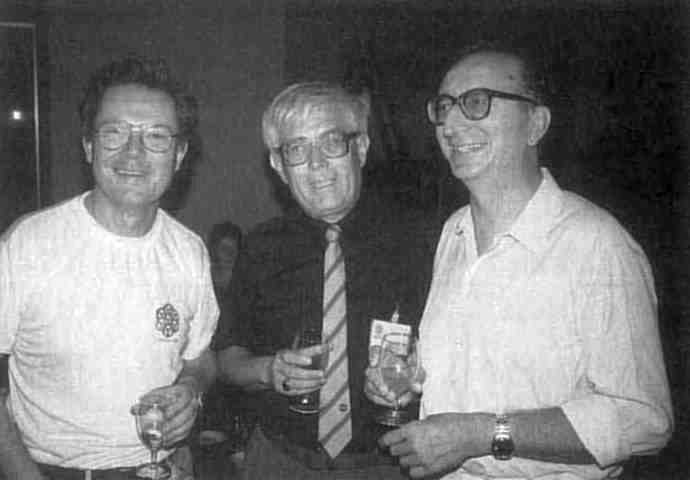


Feature article
Global family
"Did my daughter telephone you when she was in London?" asked a foreign colleague at a crystallographic meeting. "No," I replied. "Then she must have managed all right then", he explained, "I gave her your address in case she needed help." I have done the same when my daughter started to travel and, furnished with a xeroxed section from the Directory of Crystallographers, she has been sheltered, fed, and sent on her way. It is a wonderful thing to have a network of friends everywhere. We now look after the children of former research students. On the whole, the hospitality given and received have balanced out, although not to the same people. Now it is East Europeans who need it the most as they begin to travel independently with little money. Much personal hospitality supplements inadequate research grants. There is indeed a crystallographic community, with a full complement of women who are members in their own rights.
 Yves Epelboin (France), Editor in Chief of the new electronic World Directory of Crystallography, Alajos Kálmán (Hungary), past Vice-President of the IUCr and outspoken advocate of international cooperation, and Ludovico Riva Di Sanseverino (Italy), the spirit of the Erice International School of Crystallography, toast the spirit of community, of which Alan Mackay writes, at the 1990 Bordeaux meeting. (Photo WLD)
Yves Epelboin (France), Editor in Chief of the new electronic World Directory of Crystallography, Alajos Kálmán (Hungary), past Vice-President of the IUCr and outspoken advocate of international cooperation, and Ludovico Riva Di Sanseverino (Italy), the spirit of the Erice International School of Crystallography, toast the spirit of community, of which Alan Mackay writes, at the 1990 Bordeaux meeting. (Photo WLD)
A. Sayre wrote about the atmosphere of crystallography that "the idea of competition didn't seem to emerge very strongly until the 1960's or so. Uncompetitive societies tend to be good for women." Certainly, we were shocked by a physics colleague who returned from a year at an American university and reported that one PhD student would not help another with his vacuum leaks in case he lost his own advantage.
One substantial reason is that, if they did not discover competition, crystallographers discovered cooperation and internationalism, very concretely in the various data collection projects: The International Tables, the various crystal data publications, and the journals and congresses run internationally by the IUCr. It is noticeable too that crystallographers have played leading parts in the Pugwash and similar movements.
In the present period of world politics nationalist and religious divisions are emphasized to the advantage of exploitive forces which are international and which run financial circles around nation states. The community of crystallographers really contributes, on a personal level, to the formation of a world community. It is important that crystallographers, especially since they played a leading part in developing computers, should use electronic facilities to keep the world community sane by strengthening personal links around the world. Keep at it!
Alan L. MackayLondon, UK


